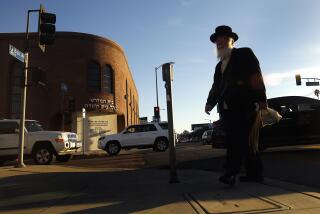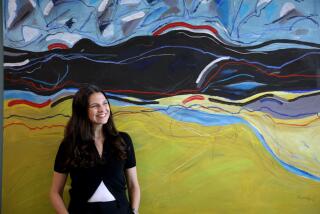‘Voice of Israel’ in fine form at Royce
Chava Alberstein is often called “the voice of Israel.” And the sobriquet seemed particularly appropriate during her concert Thursday at UCLA’s Royce Hall. Singing virtually her entire set in Hebrew and Yiddish, she ranged across the spectrum of Jewish song, from singalong traditional numbers to her own appealing originals.
Alberstein also has been labeled a peacenik and a leftist -- potentially difficult identifications in the thorny Israeli political scene. But it was interesting that, on a day on which Hamas scored a surprising Palestinian electoral victory, she said nothing about it. In fact, her only remark that might be perceived to have political implications made no reference at all to specific events or places.
“If it’s true that we love our country, then why must the love stop at its borders?” she said, the remark calling up memories of John Lennon.
It also provided a subtle but definitive example of the essence of Alberstein’s art.
Although songs such as “The Secret Garden,” “I Stand Beneath a Carob Tree” and “Like a Wildflower” spoke of the unique qualities of Jewish life, they were delivered with an engaging intensity that transcended the language in which they were sung, as well as the culture they depicted.
Starting most of her songs with a brief, illuminating introduction, she then applied the warm, intimate qualities of her voice to the lyrics, communicating almost as much via inflection and articulation as with words. Her guitar playing, enriched by the empathic accompaniment of guitarist Oved Efrati and percussionist Avi Agababa, supported and blended with her vocal lines, the entire combination the product of a veteran performer with a masterful capacity to fuse music and message.
Les Yeux Noirs, led by violin-playing brothers Eric and Olivier Slabiak, opened with a characteristically upbeat array of material bursting with rhythmic energy.
Their music, fascinating for its technical bravado, was even more impressive in its capacity to find linkages between Gypsy sounds, klezmer and traditional Jewish song, while spicing the musical goulash with sprinklings of jazz, reggae and electronica.
More to Read
The biggest entertainment stories
Get our big stories about Hollywood, film, television, music, arts, culture and more right in your inbox as soon as they publish.
You may occasionally receive promotional content from the Los Angeles Times.










